If you’re a coffee drinker, it’s likely that you’ve seen dozens of conflicting studies and scientific claims about the pitfalls and benefits of black coffee. While some Aussies swear by their daily cups of coffee because it improves their mood and kicks off the day, there are others who say it dehydrates them and makes them feel jittery.
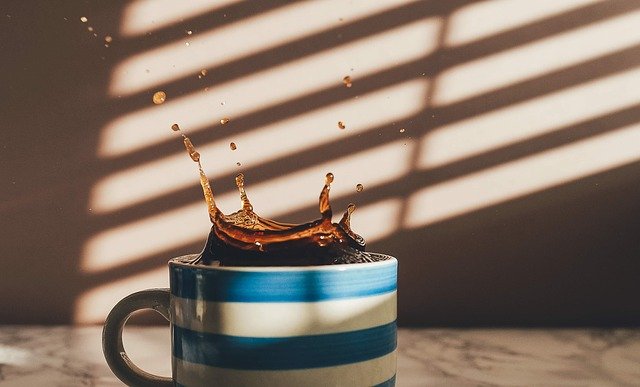
In Australia alone, we consume about 150 million bags of coffee every year. That’s a jaw-dropping ten million tonnes! Whether your beverage of choice is a flat white or a long black, it’s clear that we can’t get enough of our favourite beverage. In this article, we’ll discuss the benefits of black coffee and discuss the big question: Is black coffee good for you?
What are the benefits of black coffee?
Caffeine is known to have immense health benefits if consumed in moderation. If you’re wondering is black coffee good for you, here are some of the benefits we know about:
- It mitigates the risk of diabetes
- It is believed to fight off degenerative brain conditions such as Parkinson’s and Alzheimer’s disease
- Is loaded with essential nutrients
- Lowers the risk of certain types of cancer
- It can help recover faster from fractures
- Helps with weight management by boosting fat burn
- Relieves the symptoms of migraine
- It is known to improve lover health
- Lowers the risk of high blood pressure thereby improving heart function
- Known to improve physical performance
- Improves energy level, boosts cognition and sharpens focus
- Improves emotional health and mood
Besides all the medical benefits, there is another aspect of caffeine consumption that cannot be scientifically documented: the social ritual of drinking coffee. We meet up for a coffee, take a break with coffee, and relax with a cup of coffee. Sharing a coffee break with a friend or loved one boosts our mental health and augments mood, and is a big part of our social fabric.
Why does coffee make me feel good?
Some of us can’t start our day without our first cup of coffee. For some others, an afternoon flat white helps them power through the midday slump and drowsiness. Why does coffee work like this?
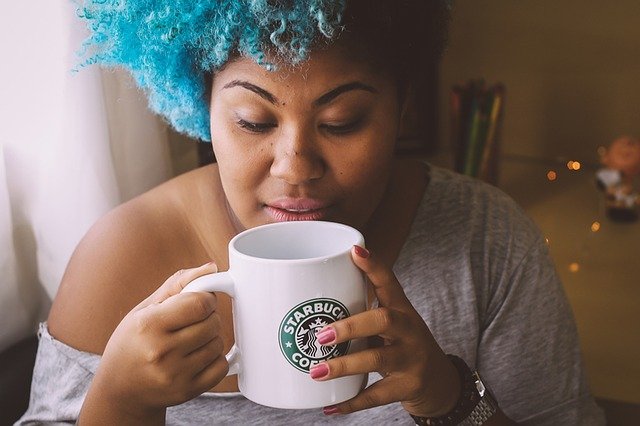
Caffeine is a stimulant that enters your blood stream and makes your nervous system ‘wake up’. It can make you feel less tired and more alert, providing a mild jolt that your body gets used to. Once you drink it, caffeine takes about 15 minutes to kick in but the effects can last for hours.
The many uses of caffeine
When we discuss the benefits of black coffee, you’re probably thinking of a hot drink or a cold iced latte. But caffeine also has a number of uses outside of a coffee mug.
Caffeine is now a regular feature in several skincare and cosmetics products because of its remarkable ability to penetrate skin cells. The potent biological activity makes black coffee good for you and for your skin.
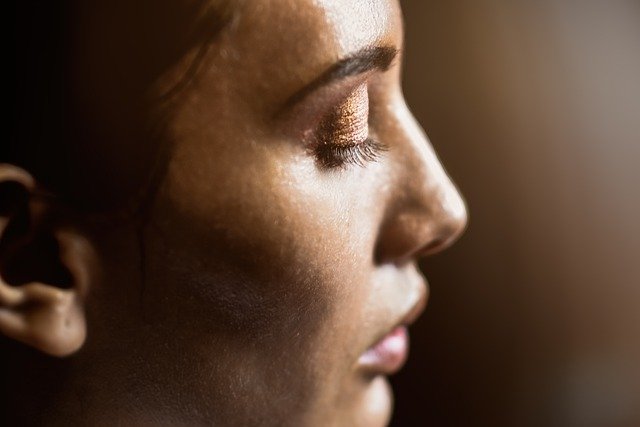
Caffeine is also known to act as a diuretic but it also works to dehydrate fat cells in your skin making it look smoother and tighter. Try a coffee face mask or a body scrub to experience the benefits of black coffee on your skin and body.
What about the bad stuff? Is coffee bad for me?
When you’re considering is black coffee good for you, you should also know the side effects or negative effects it may have on some people.
The impact of black coffee comes down to how quickly and effectively your body can break down the caffeine. While some individuals require multiple cups to experience its invigorating effects, some may feel anxious or jittery after a single cup. These effects are even more pronounced with black coffee because it provides caffeine in a purer form when compared to other variations of coffee and most beverages that contain caffeine.

If you have a low tolerance to coffee or if you drink more than your body can handle, you may experience the following symptoms:
- Rapidly beating heart
- Unexplained irritability
- Insomnia
- Headaches
- Unwarranted nervousness and feelings of panic
- Gastrointestinal discomfort
Is black coffee good for you if you mix it with other substances?
Black coffee is known to have interactions with several drugs so it is best to exercise caution if you are considering drinking black coffee after consuming other substances.
If you mix alcohol with your coffee, the caffeine masks certain effects of the alcohol. This is likely to make you drink more alcohol than you should, putting you at an additional risk in the short and long term.
It is not recommended to drink coffee if you are taking drugs for the following conditions:
- Certain medications for mental conditions
- Antibiotics
- Certain heart and asthma medicines
- Stimulants such as methamphetamine and cocaine
It is best to consult your medical practitioner or pharmacist about all possible interactions.
How much should I drink to get the benefits of black coffee?
While there has been a lot of research regarding the sweet spot of coffee consumption, there is no official figure for the upper limit on your black coffee consumption because it depends on your body’s ability to handle it. However for a healthy adult, research shows that you shouldn’t exceed more than 400 mg or 3 cups of black coffee per day.
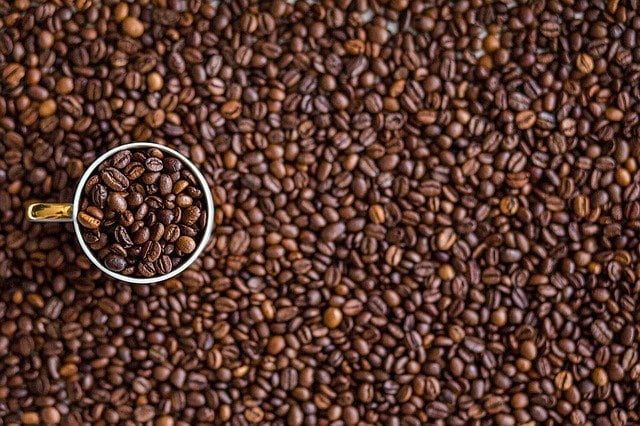
There are some groups of individuals who should be consuming far less to avail the benefits of black coffee:
- Children should consume no more than 100 mg of caffeine a day, which is the equivalent of one energy drink.
- Pregnant or breast-feeding women should limit themselves to 200 mg per day
- Those with pre-existing medical conditions should always consult a doctor before consuming
- Those at risk of fractures
So what’s the verdict? Is black coffee good for you?
It is clear from most observational and interventional studies that are linked to caffeine and health outcomes that coffee consumption in any form, black or otherwise, can be associated more often with medical benefits than harm for a myriad of health related factors.
However all these studies place emphasis on the amount of caffeine consumption as an important factor. Drinking too much coffee is unlikely to harm you in the short run but you won’t get the same benefits if you consume too much caffeine. You may even experience certain undesirable side effects if you go above your tolerance threshold.
While the recommended amount varies from person to person depending on their biochemical makeup, the average is about 3 cups a day of black coffee. This range should provide you with a number of benefits like lowered risk for diabetes, liver damage, dementia and heart conditions. All of this serves to lower your risk of death.
On the whole, it is vital that you pay particular attention to how black coffee maker you feel. If you aren’t used to consuming caffeine-infused beverages on a daily basis, you might experience side effects with even a single cup. Usually if you stick to three cups of a day, you should be able to enjoy the caffeine fix as well as the benefits of black coffee.

If you’d like to discuss your caffeine intake with an expert, Avaana can help you find a nutritionist online.
What happens when caffeine doesn’t suit me?
If coffee makes you feel ill or jittery, it doesn’t suit you. You should avoid drinking coffee and consuming anything with caffeine in it.
Here are some of the symptoms that coffee doesn’t suit you are:
- Heart palpitations
- Jitteriness
- Panic attacks
- Nervousness and anxiety
- Nausea and headaches
- Gastrointestinal discomfort
How can I quit coffee?
If you want to cut back or quit coffee, you should be aware that you may experience some withdrawal symptoms if you are a heavy consumer.
The symptoms start a day or two after you stop drinking coffee and may peak in intensity over the next few days. They should subside within a week or two. Here’s what you’ll experience if you’re going through caffeine withdrawal:
- Fatigue
- Lack of focus
- Nausea
- Headaches
- Mood swings
- Irritability
- Nervousness
In order to effectively manage these symptoms, it is advised that you slowly reduce your intake over a period of time. Stretching it out over a week or so by cutting out one cup every two days is a good pace. Alternatively you could swap your regular cup of black coffee for a decaf version.
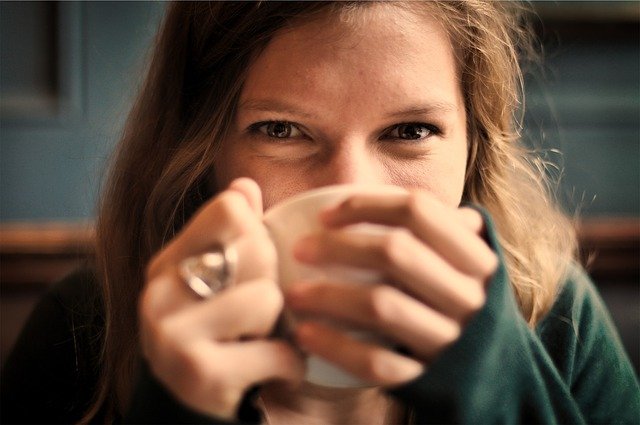
If you’re planning to cut out caffeine completely, do note that even decaf has some amount of caffeine. In this case, you should be extra cautious about your caffeine intake. Check labels on all foods and drinks that you purchase outside.
Caffeine is a naturally occurring substance in many ingredients including tea and chocolate, so be wary of the many ways in which caffeine enters your diet. In Australia, if a food item has added caffeine it will be labelled, but foods like chocolate that have natural caffeine may not be labelled.
How do I get the most benefits of black coffee?
If you want to enjoy the benefits of black coffee you should drink it in as pure a form as you can. Here’s the best way to consume it:
- Don’t heap spoons of sugar into your coffee. This can lead to weight gain and a host of other health conditions such as diabetes. Read our post on How to Quit Sugar.
- Stick to the recommended amount of coffee and space it out during the day.
- Avoid drinking coffee too close to bedtime or you will not be able to sleep well at night, which can have several repercussions on your health.
- Avoid flavours and add-ons if you’re buying your coffee at a coffee shop. Most flavours and syrups have high amounts of sugar and artificial sweeteners that are not good for you.
- Do not consume sugary, processed or fatty foods along with your cup of coffee.
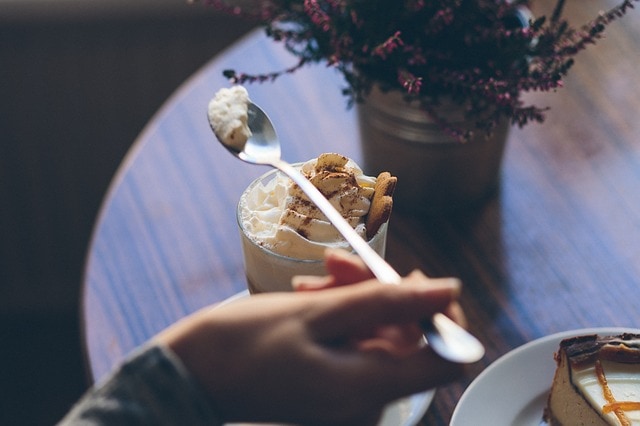
Coffee is a powerful and wonderful drug which can do wonders to your health, but be mindful of your consumption and the ‘extras’ that may reduce the benefits of black coffee.



